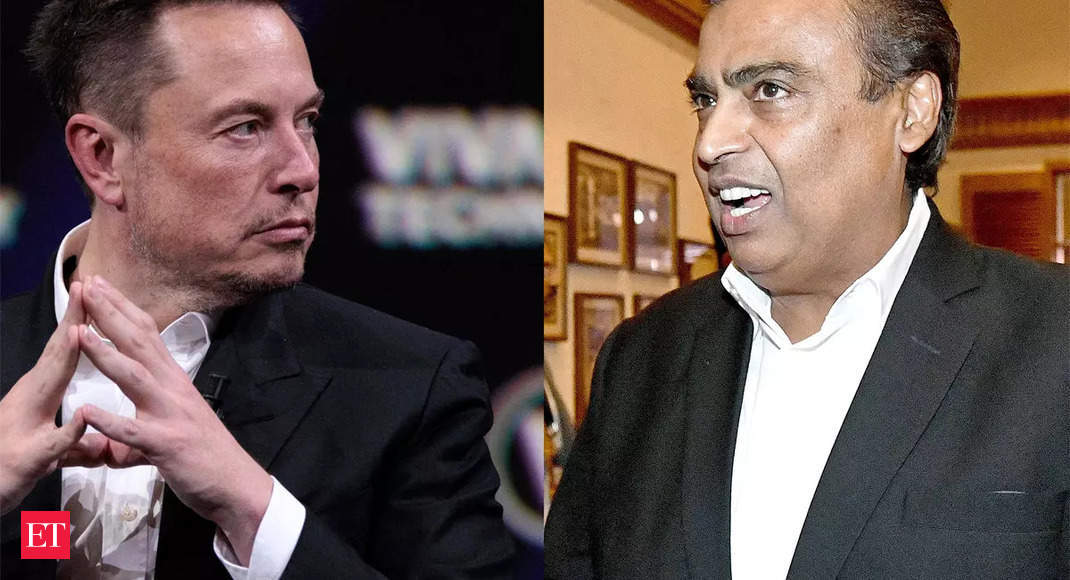Elon Musk, the billionaire founder of SpaceX and Tesla, has expressed his eagerness to launch Starlink satellite broadband in India. Musk believes Starlink could be highly beneficial in remote villages with no internet or low-speed services. However, his plans face resistance from Mukesh Ambani, the chairman of Reliance Industries and Asia’s wealthiest person, who runs Indian telecom giant Reliance Jio. The primary point of contention is the government’s distribution of satellite broadband spectrum. Starlink is lobbying India to avoid an auction and instead assign licenses, while Reliance insists on an auction to maintain fairness in the market. This potential battle between the two billionaires highlights their competing interests in providing satellite services to the world’s most populous nation.
Starlink argues that an auction would impose geographical restrictions and increase costs. It believes that spectrum is a natural resource that should be shared among companies, following a global trend. On the other hand, Reliance argues that an auction is necessary to ensure a level playing field and that foreign satellite service providers, like Starlink, should not receive preferential treatment.
The stakes are high for Musk as he seeks to expand Starlink’s operations in India. His previous attempt to launch Starlink in the country encountered regulatory issues due to unauthorized bookings. Additionally, Musk is currently in talks with India to establish a Tesla factory. For Ambani, preventing foreign competition in the satellite broadband sector would further solidify Reliance Jio’s dominant position in the Indian market. Reliance Jio already boasts 439 million telecom users and holds a 25% market share in wired broadband connections.
Starlink’s perspective on spectrum allocation aligns with other satellite internet initiatives, such as Amazon’s Project Kuiper and the British government-backed OneWeb. Both companies advocate for licensing rather than auctions. However, Reliance continues to pressure the Indian government to proceed with an auction, resisting the demands of foreign companies.
The outcome of this battle will impact the future of satellite broadband in India. The Telecom Regulatory Authority of India, OneWeb, and SpaceX, the parent company of Starlink, declined to comment on the matter. Deloitte predicts that India’s satellite broadband service market will grow by 36% annually to reach $1.9 billion by 2030.
Foreign satellite internet firms are concerned that an auction in India may encourage other countries to follow suit, resulting in increased costs and investments. Consequently, Starlink and OneWeb are closely monitoring India’s spectrum allocation decisions before finalizing their commercial strategies in the country. Analysts believe that it would set a negative precedent for Starlink to pay a substantial auction amount in India when it has obtained low-cost licenses in numerous other countries. As the battle unfolds, Musk may resort to offering high-profile free services elsewhere to showcase the potential benefits India could miss out on if an auction is held.











